The concept of psychological games in transactional analysis
Part 3: Connections to other concepts of transactional analysis
Connections between psychological games and the conceptual landscape of transactional analysis
The psychological games are a Concept of transactional analysiswhich deals with communicative patterns of a manipulative nature. These psychological games are usually destructive in nature. Eric Berne, the founder of transactional analysis, was instrumental in developing this concept. With his – one could say – bestseller „Games People Play“ (1964), he was instrumental in the early success of transactional analysis as a school of humanistic psychology.
In this third part of our short series of articles, we will look at the connections and links to other transactional analysis concepts.
A short series of articles on the psychological games of transactional analysis:
The concept of psychological games is not just a "Founder concept of the TA"but also one of its supporting pillars, on which the house of transactional analysis is built.
In addition to game analysis, these include transactional analysis (in the narrow sense), script analysis and ego state or structural analysis.
It is therefore not surprising that the analysis of psychological games also includes other concepts of transactional analysis. touches on, supplements or requiresin order to recognise psychological games at all. The latter includes, for example, knowledge of ambiguous transactions, i.e. the psychological and social levels of communication – and thus knowledge of functional ego states and transactional analysis in the narrow sense, which deals with the communication process.
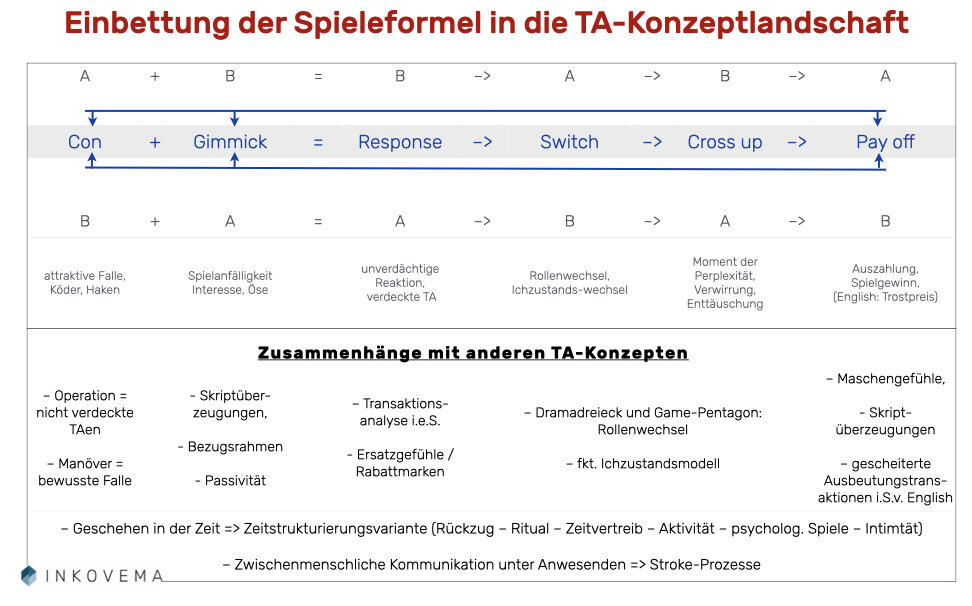
1. con + gimmick
Hook, bait, attractive trap,…but also eyelet, game susceptibility and game interest can no longer be clearly assigned to persons with Christoph-Lemke's understanding of the game, but are merely the result of punctuation by the observer. Both persons in a game sequence are both trap setters and trap tappers. Both play their own personal game together. That is what you are (unconsciously) concerned with, so that here, of course Script topics appear, Frame of reference be clarified or at least communicatively defined.
At the beginning, Berne still had the prelude to „a“ psychological game demarcated to Operationsin which he ascribed the lack of unconsciousness to them and already made it clear that the action of an operation is not a psychological level in the sense of a psychological level. Concealed transaction would show. We will come back to this later. From a Manoeuvre Berne, on the other hand, spoke when the communicative trap was deliberately set and thus evil, ironic or other intentions came into play.
2. responses
a. Hidden transactions
Responses are to be recognised over the duration of their occurrence. Hidden transactions.
Hidden transactions are part of the concept of Transactional analysis in the narrower sense (in the narrow sense) such as parallel and crossed transactions.
Covert transactions describe the phenomenon that communication takes place on two levels, on one social, open level and on a psychological, hidden level. The psychological level is decisive for the progress of the interaction between the participants, their well-being and their co-operation. It encompasses the entire relationship level, as is the case with Watzlawick would be called. In the concept of Schulz von Thunthe Four-ears-mouth model the relationship, appeal and self-revelation levels would be covered.
b. Functional model of the behavioural modes
Transactional analysis manages to visualise all these forms of communication graphically with the help of its Functional model of ego states, not with the structural model, since only the functional model can represent certain Behavioural modes and thus communication behaviour represents.
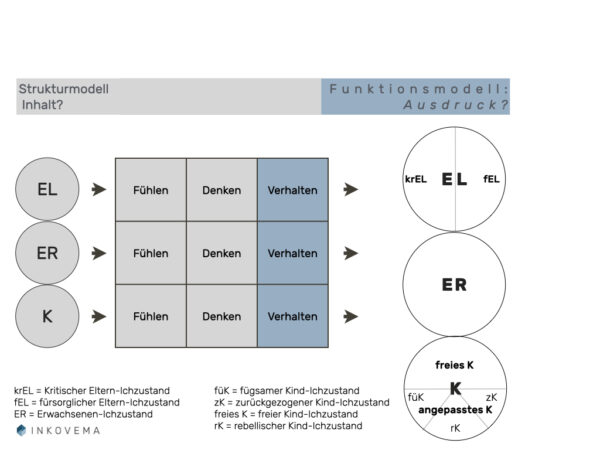
Here, for example, we are dealing with a covert transaction in the world of work. The hidden level is often recognisable by tone of voice, gestures and facial expressions and therefore cannot be fully represented graphically.
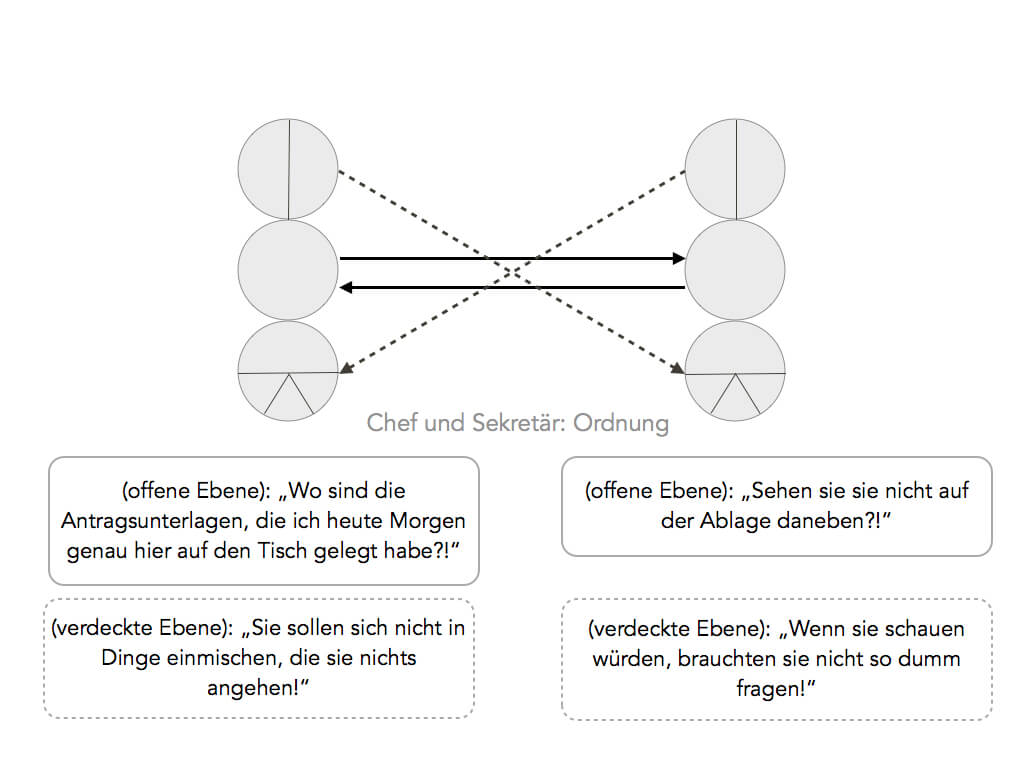
c. Substitute feelings and exploitation transactions
Emotionally, there is a high probability that the covert transactions of the parties involved will be consistently associated with substitute feelings (Rocket feelings) are occupied. This is a TA concept that above all Fanta English that has also shaped her view of psychological games.
English emphasises for the analysis of psychological games that winning the game for the participants (see below) is merely a Consolation prize because those involved are more concerned with resolving their drama and experiencing „real“ rather than substitute feelings. For this reason, he went on to distinguish himself in the context of covert transactions and generally advocated a Differentiation between psychological games and exploitation transactions („ersatzgefühldurchränkte Transaktionen“) (cf. English, 2001, 116). This deviating or more far-reaching differentiation only becomes significant at the end of a game, which English qualifies as a consolation prize from her perspective. A consolation prize because the actual prize is already in the Strokes of exploitation transactions and not, as Berne emphasised, in the bad feelings at the end of a game.
3. switch + crossup + payoff
a. Drama triangle and game pentagon
The drama triangle from the transactional analysis conceptual framework is so well known that it is almost newsworthy that it is an (alternative) form of representation for psychological games. Stephen Karpman has succinctly outlined the dynamics of games here. It is so catchy that this model is known far beyond TA circles (little insider joke ;-)!
Summerton's game pentagon takes up the basic idea of the drama triangle and embeds it in organisational dynamics.
These two concepts, which focus primarily on the dynamics of conflict escalation““, provide a deeper insight into the game situation of the role switch. They are less tempting than Bernes' game formula to explore the (communication) psychological causes of these role or ego state changes. This would only make sense in therapy or self-awareness counselling.
On the other hand, these two concepts are ideal for understanding the conflict dynamics and the organisational and systemic effects this change situation has on conflict communication – and offer many approaches for looking at the situation from a distance. New ideas are then almost inevitable.
b. Script beliefs
The fact that people follow a unconscious life plan Following the unconscious script, the contents of which were developed and decided in early childhood, is one of the distinctive theoretical contents of transactional analysis – and makes it a strong representative of self-growth psychology. Identifying, examining and, if necessary, modifying these unconscious script contents represents the path of choice for transactional analysis. This makes self-awareness, (emotional and mental, sometimes spiritual) growth possible.
Insofar as the contents of one's own life plan are unconscious, transactional analysis speaks of the Script beliefs. For mediation and conflict resolution, these areas of ideas regularly play a lesser role, as no therapeutic ideas are regularly pursued and implemented in these work settings.
4. other influencing TA concepts
a. Concept of time structuring.
Transactional analysis has also presented a concept of how people structure their (life) time. There are basically six options to choose from: Retreat, rituals, pastime work, psychological games and sincere, intimate encounters, whereby the last option is by no means limited to love or sexual relationships.
This selection is not simply available, but arises from the psycho-physiological basic need to Structure, transactional analysis in addition to the need for Stimulant and strokes as the three basic psycho-physiological hunger of the human being named. Above all, the need for structure is shown and fulfilled in the structuring of (life) time.
The – already named by Berne – Six variants of time structuring are not in an arbitrary order. Rather, the degree of emotional risk (vulnerability) increases on the one hand, but this is offset by the increased social information content (stimulation and strokes!) on the other. Of course, combinations are conceivable and not uncommon. Which variant is ultimately chosen depends on the respective individual frame of reference and the individual "Stroke needs" (stroke filters!, stroke myths!). The Culture of the organisation or social system in general (group) has an enormous influence.
b. Stroke process
Psychological games are also social and emotional events as a way of structuring how to spend one's (life) time. The psycho-physiological Hunger for recognition and attention (for one's own being and doing) is described by transactional analysis with the concept of strokes. A „stroke“ practically stands for a social, communicative unit of recognition and includes both „strokes“ and „strokes“. The stroke concept encompasses several conceptual areas that go far beyond the basics of strokes. This would be worth a blog series of its own. I will only outline them here. In addition to the basics, which can be well illustrated using the stroke cube (Fig.), there is also a lot to say about the stroke filters, the stroke myths and Claude Steiner's – in my opinion outdated – stroke economics. But more on that elsewhere, right?
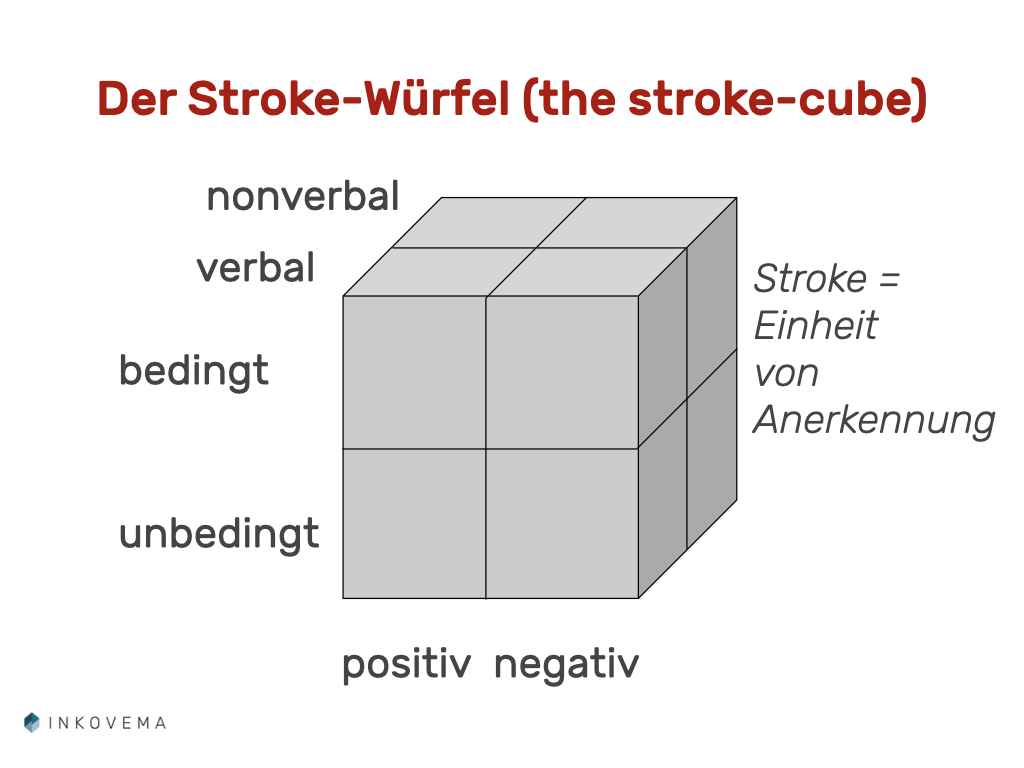


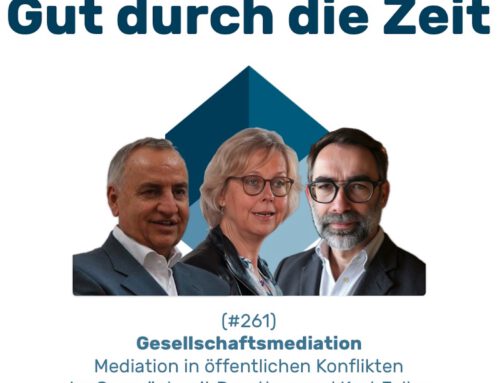


Leave A Comment